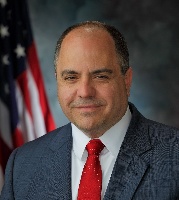Dalton White Collar Crime Lawyer, New York
Sponsored Law Firm
-
 x
x

Click For More Info:
-
Law Office of Mark S. Guralnick
55 Madison Avenue 4th Floor Morristown, NJ 07960» view mapCriminal Defense Law Dedicated. Fearless. Successful.
Mark S. Guralnick and his legal team have helped clients throughout the USA and across the world by applying unparalleled dedication and hard work to each case.
800-399-8371
Not enough matches for Dalton White Collar Crime lawyer.
Below are all Dalton Criminal lawyers.
Raymond Paul Sciarrino
✓ VERIFIEDCriminal, Real Estate, Personal Injury, Traffic, Estate
Licensed: 22 Years
Sciarrino & Sciarrino, P.C. is a criminal law firm serving Rochester and the surrounding areas of Livingston County and Wyoming County. For more than ... (more)
John Albert Cappellini
White Collar Crime, Estate Planning, Bankruptcy, Contract, Natural Resources
Status: In Good Standing Licensed: 27 Years
Scott David Woodruff
White Collar Crime, DUI-DWI, Criminal
Status: In Good Standing Licensed: 14 Years
Bronwyn Elaine Enders
Social Security, Divorce & Family Law, Criminal
Status: In Good Standing Licensed: 17 Years
Peter J. Degnan
Motor Vehicle, Wrongful Termination, Criminal, Bankruptcy & Debt
Status: In Good Standing Licensed: 36 Years
John C. Putney
Real Estate, Traffic, Estate, Divorce & Family Law, Criminal
Status: In Good Standing Licensed: 43 Years
 Mark Guralnick Morristown, NJ
Mark Guralnick Morristown, NJ AboutLaw Office of Mark S. Guralnick
AboutLaw Office of Mark S. Guralnick Practice AreasExpertise
Practice AreasExpertise

